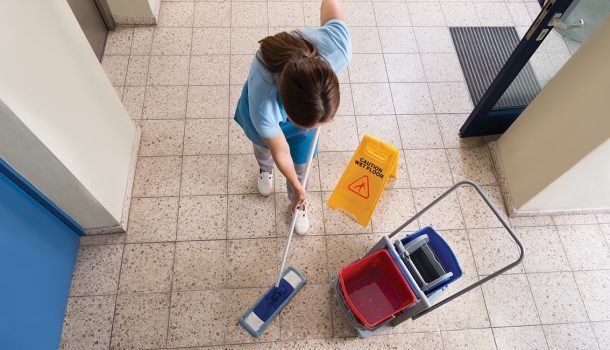
A nationwide study involving 5000 international students has found the majority are experiencing wage theft, with three in four students earning below the minimum casual wage and one in four earning less than half the minimum.
‘International Students and Wage Theft in Australia’ is the latest report from UTS Law Associate Professor Laurie Berg and UNSW Associate Professor Bassina Farbenblum who co-direct the Migrant Worker Justice Initiative.
It builds on their 2016 national survey of temporary migrant workers. This new study finds that, despite efforts from the Fair Work Ombudsman over the last three years and stronger penalties against employers, it is still ‘business as usual’ in terms of the exploitation of international students.
Farbenblum said the proportion of international students who are egregiously underpaid has remained essentially unchanged.
“Our findings show that tinkering around the edges of the problem isn’t working. Wage theft is endemic for migrant workers and indeed many Australian workers in certain industries. To seriously disrupt wage theft in Australia, we need urgent reforms to labour enforcement and student visa conditions, as well as a new wage recovery tribunal. ”
Berg said almost two thirds of international students didn’t seek information or help for problems at work.
“They suffered in silence, often because of visa concerns or fear of job loss. Our findings confirm many who complained were in fact sacked. Their visa concerns are also valid – there’s nothing to stop the labour regulator sharing information with immigration authorities if a student has worked more hours than her visa allows.”
The report forms part of the Information for Impact project, funded by StudyNSW, to better understand the problems international students encounter in work and housing, and to determine effective interventions.
“The COVID-19 shutdown has created a humanitarian crisis among international students and other migrant workers in Australia,” Farbenblum says.
To document the extent of this crisis, the academics have just launched a world-leading COVID-focused nationwide survey of temporary migrants in Australia.
The new survey will gauge levels of financial insecurity, workplace exploitation and homelessness among international students and other temporary migrants who have remained here during the pandemic.
Maurice Blackburn Employment Law Senior Associate, Patrick Turner, said the report showed international students were being routinely exploited by unscrupulous employers and many were too afraid to speak up – particularly since the COVID-19 crisis had devastated casual employment and made jobs scarce.
“The vulnerability of these exploited workers has only worsened under COVID-19. Many are too scared to speak out because they fear they will lose their visas. Too many employers are knowingly exploiting these workers believing they are unlikely to face any consequences.”
Turner welcomed moves to criminalise wage theft in Victoria and Queensland, but said more needed to be done.
“Too often in these cases the balance is tipped in favour of the employer responsible for perpetrating the wage theft, and it can be a very difficult process for a worker to bring a claim for underpayment in seeking to get back wages they are owed,” Turner said.
“While new laws show that exploitation of workers, particularly those on low wages, will no longer be tolerated, more needs to be done to assist international students who have been excluded from JobKeeper and JobSeeker payments. Workers who have had wages stolen have faced considerable challenges just to come forward and report this.”
“COVID-19 has further exacerbated this for many international students who have been left jobless almost overnight with no way to pay their rent or meet basic living expenses.”
Turner said federal governments must take note of the recommendations outlined in today’s report, including calls to provide a more effective wage recovery mechanism for migrant workers who have been underpaid as well as adoption of wider regulatory reforms.
“Today’s report also renews calls for an absolute firewall to be established between the Fair Work Ombudsman and the Department of Home Affairs to prevent the two agencies sharing information about potential visa contraventions when migrant workers seek help for wage theft,” Turner said.
“Governments must introduce targeted campaigns to deliver clear information to international students so they know their legal and workplace rights. Importantly, international students need to be reassured by government that they will not face adverse consequences if they speak up about workplace exploitation.
“Migration has been the bedrock of Australia’s prosperity, but we cannot allow this to be built off the back of exploitation of vulnerable migrants,” he said.
Last month Victoria became the first state in the country to pass laws establishing criminal penalties for employers who deliberately underpay or don’t pay their workers.
Employers who dishonestly withhold wages, superannuation or other employee entitlements, will face fines of up to $198,264 for individuals, $991,320 for companies and up to 10 years’ jail.
The Wage Inspectorate of Victoria will also be established as a new statutory authority with powers to investigate and prosecute wage theft offences.
Comment below to have your say on this story.
If you have a news story or tip-off, get in touch at info@3.106.117.80.
Sign up to INCLEAN’s newsletter.




